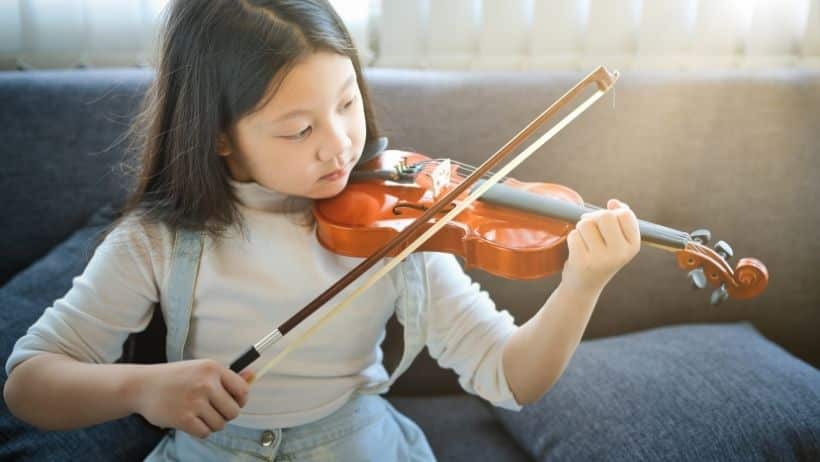Introduction
Are you the parent of a school-aged child? Do you want them to learn an instrument, but don’t know which one to choose? Then this article is for you! The violin is an excellent choice of instrument. It’s compact and lightweight, has a beautiful stone that can fit into almost any musical environment, and comes in many shapes and sizes. It also has many benefits for your child that go far beyond learning how to make music. Here are five reasons why your children should learn to play the violin:
1. Violin is all about skills and discipline.
To play the violin, you have to be willing to put in the time and effort. It’s a skill that takes a lot of practice and discipline. You have to be consistent with your practice, focused on what you are doing, and willing to admit when something isn’t working for you so that you can adjust yourself or change directions.
It’s not something that comes easily or without effort, but this is why it’s such a great instrument for children! They need these skills to play well–and they’ll pick up those skills despite themselves while they’re learning!
2. Kids learn to appreciate different cultures through music.
The violin is a versatile instrument that has been used by many cultures, from Europe to Asia and Africa. Kids who learn how to play the violin can explore these different cultures by playing music from a variety of genres. For example, your child may learn how the violins of Eastern European countries are different than those in Western Europe, or she may discover how it’s used in jazz and classical music as well as traditional folk songs. Learning about world cultures through music will help your child develop an appreciation for other places and people.
3. Music encourages creativity, especially with kids.
- Music encourages creativity, especially with kids.
Children are naturally creative and music is a great way to channel that creativity. The violin is a unique instrument: it has no frets and no predetermined chords like most other stringed instruments so there are many ways to play it. That means the possibilities for creating new sounds are endless. It’s also an excellent way to express yourself while playing in a group or playing solo. As they learn how to play the violin, children will find their sound which they can use as inspiration for their creative ideas!
4. It promotes holistic development.
Playing the violin can help children develop their motor skills, social skills, and cognitive skills. It can also help develop their emotional and language skills.
The instrument requires good coordination and hand-eye coordination, which will work on the brain’s “good side” to improve in other areas such as memory, reading comprehension, and problem-solving. Playing an instrument like the violin is a complex task that involves listening carefully for instructions from your teacher or parent and then following those instructions by playing an instrument with one hand while holding it with another hand on your shoulder (while wearing tight clothes). These types of movements are not only fun but they also teach fine motor skills that will benefit children throughout life beyond playing a musical instrument!
5. It helps in developing self-confidence and self-esteem.
Learning to play a musical instrument is a great way to teach your children important lessons about self-confidence, self-esteem, and discipline.
When you learn to play the violin, you’ll be challenged by making mistakes and failing, but that makes it all the more rewarding when you do succeed. When learning how to play any instrument, there will be times when everything seems hopeless and you feel like giving up. But if you are willing to take risks and face those challenges head-on, then you can build up confidence and self-esteem by learning from your mistakes instead of letting them stop your progress completely.
Learning an instrument also helps kids develop their listening skills as well as improve their ability to teamwork with fellow musicians because everyone has different strengths when playing together; this also helps children learn about compromise during rehearsals so everyone’s ideas have a value which leads to another reason why children should learn how to play music…
The violin, like other instruments, is a great way to give children the opportunity to express themselves and use their imagination while learning at the same time.
Playing the violin can be a great way for children to express themselves creatively. Different cultures have different types of music, and children will learn about many different cultures as they play. Additionally, learning how to play an instrument such as the violin gives a child the opportunity for education outside of their regular school day. The ability to think outside of the box and use their imagination is something that will benefit them throughout their lives.
Conclusion
Learning the violin is a great way for your child to learn important life skills, develop their musicality and explore new opportunities for creativity. It’s also a great way for you to connect with them in a fun and meaningful way.







